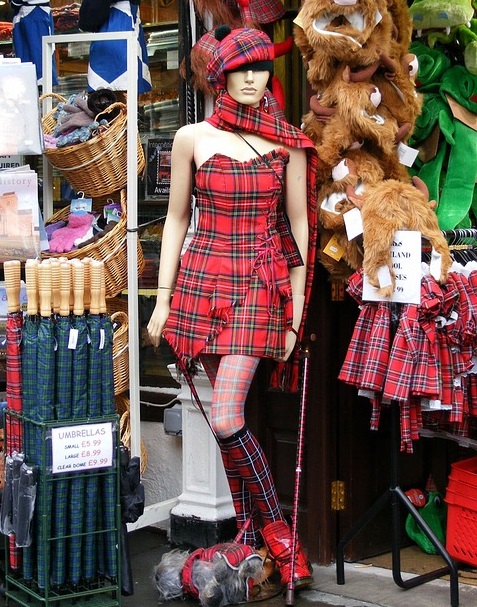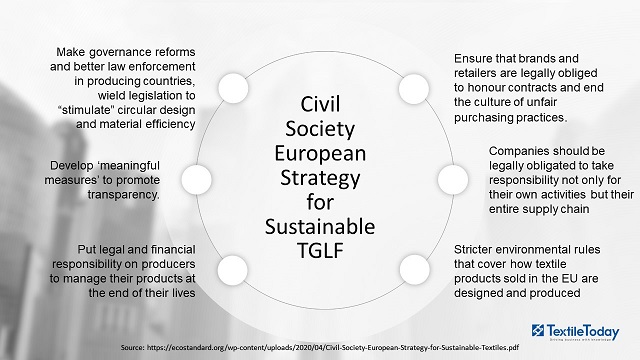To strengthen the endeavor of European Commission’s new ‘comprehensive’ circular strategy development for textiles in the coming months, a group of 65 diverse civil society organizations has stood together and published a ‘shadow’ proposal to be implemented for the global Textile, Garments, Leather and Footwear (TGLF) sector, which will ensure its fairness and sustainability.
 Figure 1: Cancelled orders and delayed payments due to the pandemic have left millions of vulnerable workers in the textile supply chain without pay and the livelihoods of their families at risk.
Figure 1: Cancelled orders and delayed payments due to the pandemic have left millions of vulnerable workers in the textile supply chain without pay and the livelihoods of their families at risk.
The coalition stressed to diminish the exercise of unfair purchasing practices that leads to canceled orders, unpaid workers and unsellable products.
Explaining the fact of COVID-19’s impact on factories and urging for a solution, Patrizia Heidegger, Global Policies and Sustainability Director at the European Environmental Bureau, said, “Cancelled orders and delayed payments due to the pandemic have left millions of vulnerable workers in the textile supply chain without pay and the livelihoods of their families at risk.”
“This is once again laying bare the lack of clear legal obligations for buyers to take responsibility for their whole supply chain. It’s time for an EU response to tackle both fashion’s exploitation of workers and the shocking environmental and climate damage of an industry based on the sale of ever more new products,” Patrizia Heidegger added.
A wide coalition of organizations like Clean Clothes Campaign, the European Environmental Bureau, Fairtrade International, Fashion Revolution, Traidcraft Exchange, World Fair Trade Organization, etc. is grabbing the attention of the European Commission, Members of the European Parliament (MEPs) and European Union governments to incorporate the ambitious and integrated strategy designed to reform the textile industry’s broken model for the post corona world.
This move emerges after the European Commission’s commitment to a ‘comprehensive textile strategy’ in last month’s Circular Economy Action Plan.
The current TGLF industry has a bad reputation for hostile working conditions and workers’ rights violations. Moreover, it has fragmented supply chains, a lack of transparency in business cultures and an imbalance of power between suppliers and global buyers.
The coalition’s Civil Society European Strategy for Sustainable TGLF wants to fight against these problems by proposing a strategy to the EU that can be strictly followed.
The joint initiative recommends:
Companies should be legally obligated to take responsibility not only for their activities but also for their entire supply chain.
There will be stricter environmental rules to supervise how textile products sold in the EU are designed and produced
Legal and financial responsibility should be put on producers to manage their products at the end of their lives.
The producers must work with transparency.
 Figure 2: Civil Society European Strategy for Sustainable TGLF.
Figure 2: Civil Society European Strategy for Sustainable TGLF.
Members of the European Parliament Delara Burkhardt, Heidi Hautala and Helmut Scholz have given their support to the proposed strategy. They addressed a joint letter to all members of the European Parliament to share and support the document.
Representing the coalition, Sergi Corbalán, Executive Director of the Fair Trade Advocacy Office said, “Voluntary industry action has failed to bring about the fair and sustainable textile industry, so it’s time for EU leaders to reset the industry’s structure”.
To emphasize the importance of every initiative proposed by the coalition, he said, “It’s not a menu from which the Commission can pick specific initiatives and leave others behind, but a comprehensive strategy in which taking action in each field reinforces the efforts put into others.”
The Commission’s commitment to a ‘comprehensive Textile Strategy’ was made in the Circular Economy Action Plan published in March. EU Environment ministers will have their say when they react to the Action Plan at the next Environment Council meeting on 22 June.
Source:Textile Today